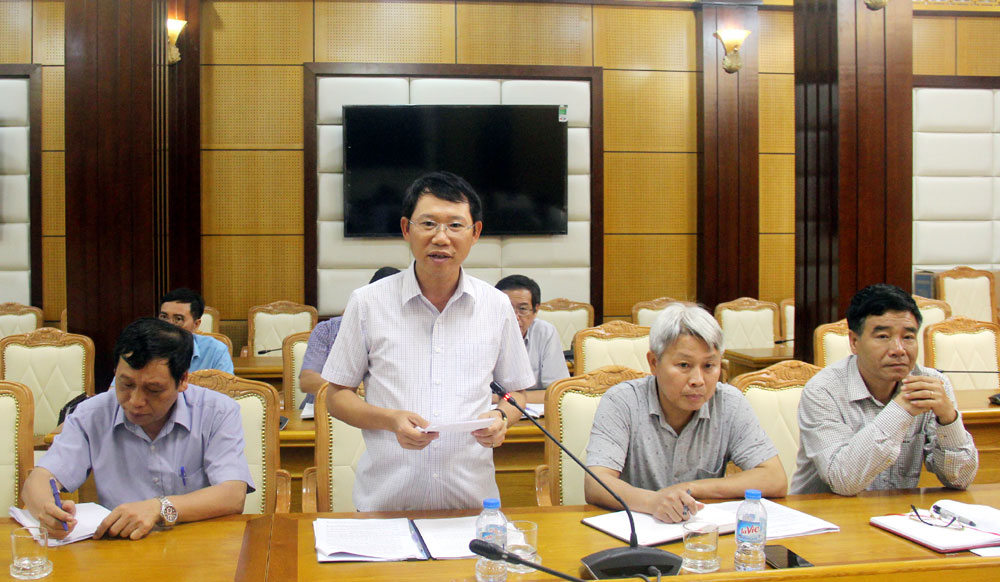Bac Giang works to improve healthcare service quality, self-reliance
 |
|
Secretary of the provincial Party Committee Bui Van Hai presides over the working session. |
The working session also saw the attendance of Do Duc Ha, member of the provincial Party Committee’s Standing Board and head of its Commission for Popularization and Education; Tu Minh Hai, Vice Chairman of the provincial People’s Council; Le Anh Duong, Vice Chairman of the People’s Committee, and leaders of some departments, agencies and sectors as well as a number of public healthcare establishments.
Currently, the province has 22 healthcare establishments which can provide themselves a part of their operating costs, including 17 hospitals, four healthcare centers and the College of Medicine.
Public hospitals, excepting the Psychiatric Hospital, have applied prices of medical check-up and treatment services for health insurance cardholders in accordance with Circular 37/2015/TTLT-
Over the past years, healthcare establishments have built, upgraded and expanded their infrastructure systems and bought equipment using Government bond capital, the province’s budget, social sources and foreign aid.
 |
|
Vice Chairman of the provincial People’s Committee Le Anh Duong addresses the working session. |
These establishments now have 70-75 percent of total equipment as demanded by the Ministry of Health. A number of modern equipment was also equipped to conduct highly-skilled techniques, including scanning, magnetic resonance imaging (MRI), hemodialysis, endoscopic surgery and psychiatric surgery.
Through the projects of expanding satellite hospitals and training new techniques as well as the North East and Red River Delta Regions Health System Support (NORED), medical staff at local hospitals have improved their professional skills and been able to receive high techniques from central hospitals.
On this occasion, the Department of Health proposed that the provincial Party Committee, People’s Council and People’s Committee to allow 14 hospitals to perform self-reliance in regular spending from 2018 and provide funding for them upgrade their infrastructure and equipment with an average sum of 30 million VND per bed.
Concluding the working session, Hai asked the hospitals to effectively use allocated financial sources, while fully exploiting existing assets for professional purposes, saving costs and ensuring surplus between incomes and expenses to improve living conditions of staff members.
He also urged the sector to encourage the engagement of the community and mobilize non-state resources to improve their infrastructure systems. The sector also needs to focus on training human resources and developing new techniques, expanding services to increase incomes and reduce the number of patients moving to central hospitals.
The provincial leader requested the sector to actively cooperate with organizations and individuals in providing healthcare services, while continue speeding up administrative reform to improve the satisfaction of patients as well as incomes of healthcare staff.
Hai said the sector should also take measures to minimise overspending and high prices of services for health insurance card holders and the hospitals are permitted to decide their own apparatus and number of personnel. However, the hospitals need to submit job positions to the Health Department and the Department of Internal Affairs for approval.
Minh Thu
 Bắc Ninh
Bắc Ninh









Reader's comments (0)